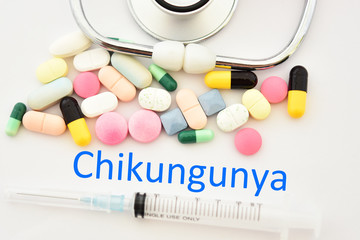
There are no specific antiviral drugs available to treat the Chikungunya virus. For this reason, treatment options are symptomatic and limited. Symptomatic therapies include non-salicylate analgesics and non-steroid anti-inflammatory drugs. The disease is endemic to Africa, Southeast Asia, the Indian subcontinent, the Pacific region, and the Americas. To learn more about this disease, visit the WHO’s page on neglected tropical diseases.
Although there is no specific treatment for chikungunya, it is possible to identify the virus through blood tests. Serological and virological tests are recommended for a diagnosis. RT-PCR is an enzyme-based method of gene-sequencing, a rapid DNA amplification. Some methods are sensitive while others are not. For a reliable diagnosis, it is important to know the source of the samples used for testing. For this purpose, RT-PCR products are available.
The virus is found in blood samples within five to six days after infection. Serological testing is recommended for blood samples collected during the first week of illness. RT-PCR, or reverse transcriptase polymerase chain reaction, is used to confirm the diagnosis. The sensitivity of the PCR methods varies. Some are more suitable for clinical diagnostics, while others are more specific for research purposes. Regardless of the type of tests, patients should focus on treating the symptoms and minimizing possible complications. For example, use of antipyretics and taking fluids are effective for relieving the fever and joint pain.
Despite the fact that there is no real treatment for Chikungunya, the symptoms are usually manageable. A fever and joint pain that may last a week or two are normal, and the disease usually clears up without treatment. However, the joint pain can persist for months or even years. Physiotherapy is recommended for those with long-term aches. It’s important to see a doctor for follow-up care and to consult a physician immediately if your symptoms have become severe or recurring.
Despite the fact that the virus is rare, it can still cause severe symptoms. A few days after infection, fever will disappear, but joint pain can remain for months. Symptomatic patients should take acetaminophen or ibuprofen for pain. The chikungunya virus is a life-long infection and is more dangerous to people with high blood pressure and diabetes.
Chikungunya disease treatment should focus on treating symptoms and preventing further infection. It is important to be aware of the chikungunya virus’s symptoms because the symptoms are similar to those of the dengue virus. Depending on the severity of the infection, patients should seek medical care immediately to prevent recurrence of the disease. The initial diagnosis should be based on the patient’s age and gender.
A laboratory test can detect the virus in the blood, but the virus does not cause severe illness. Symptomatic patients will experience fever, joint and muscle pain, and may also experience a range of other symptoms. Although there is no specific treatment for this disease, various treatments are available to treat this disease. Many of these treatments are effective and safe for most people. In many cases there is no need to see a doctor for a week.
A blood test can detect the virus in the body during the first few days of illness. A blood sample collected during the first week of illness should be subjected to virological testing. Some RT-PCR products have limited sensitivity but are suitable for clinical diagnosis. The site https://nuffnang.co.th/ recommends that patients with symptoms take only antipyretics to relieve joint pain and drink plenty of water to recover. Most people recover within a few days.
For fever and joint pain, antiviral drugs can be used topically. Antiviral drugs are not recommended for use in the first week after infection. Treatment of the disease should include the use of repellents. These repellents contain IR3535, DEET and icaridin. All three of these compounds are highly sensitive to the virus and are therefore safe to use. These products should be applied to exposed skin.
Although mosquito-borne viruses are easily transmitted, the disease is spread through infected blood. Symptoms of Chikungunya infection include joint pain, rash and fever. Infection occurs three to seven days after a mosquito bite. Symptoms are accompanied by pain in the joints and muscles. Sometimes the only symptom is fever, but the infection can persist for up to seven days.
Leave a Reply